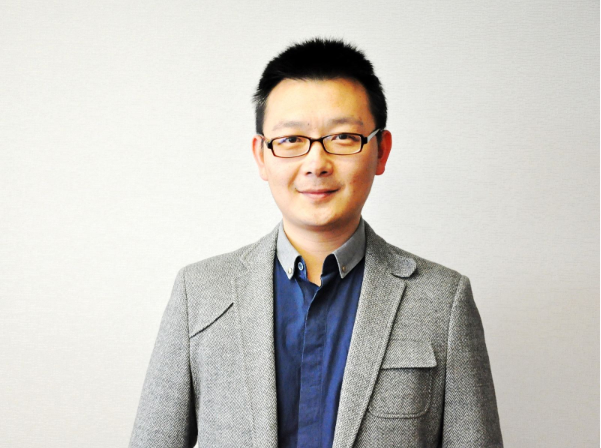发表论文: 国际学术期刊论文(*通讯作者) Gao, Z., Liu, X., Zhang, D., Liu, M., & Hao, N.* (2020). The indispensable role of the cerebellum in visual divergent thinking. Scientific Reports, 10: 16552. Lu, K., Yu, T., & Hao, N.* (2020). Creating while taking turns, the choice to unlocking group creative potential. NeuroImage, 219: 117025. Lu, K., Teng, J., & Hao, N.* (2020). Gender of partner affects the interaction pattern during group creative idea generation. Experimental Brain Research, 238, 1157-1168. Hao, N.*, Qiao, X., Cheng, R., Lu, K., Tang, M., & Runco, M. A. (2020). Approach motivational orientation enhances malevolent creativity. Acta Psychologica, 203:102985. Wang, X., He, Y., Lu, K., Deng, C., Qiao, X., & Hao, N.* (2019). How does the embodied metaphor affect creative thinking? NeuroImage, 202: 116114. Lu, K., Xue, H., Nozawa, T., & Hao, N.* (2019). Cooperation makes a group be more creative. Cerebral Cortex, 29, 3457-3470. Lu, K., & Hao, N.* (2019). When do we fall in neural synchrony with others? Social Cognitive and Affective Neuroscience, 14, 253-261. Lu, K., Qiao, X., & Hao, N.* (2019). Praising or keeping silent on partner's ideas: Leading brainstorming in particular ways. Neuropsychologia,124, 19-30. Xue, H., Lu, K., & Hao, N.* (2018). Cooperation makes two less-creative individuals turn into a highly-creative pair. NeuroImage, 172, 527-537. Wang, X., Lu, K., Runco, M. A., & Hao, N.* (2018). Break the "wall" and become creative: Enacting embodied metaphors in Virtual Reality. Consciousness and Cognition, 62,102-109. Yuan, H., Lu, K., & Hao, N.* (2018). Interactive effect of motivational motor action and emotion on divergent thinking. Personality and Individual Differences, 131, 93-98. Wang, M., Hao, N.*, Ku, Y.*, Grabner, R. H., & Fink, A. (2017). Neural correlates of serial order effect in verbal divergent thinking. Neuropsychologia, 99, 92-100. Hao, N.*, Xue, H., Yuan, H., Wang, Q., & Runco, M. A. (2017). Enhancing creativity: Proper body posture meets proper emotion. Acta Psychologica, 173, 32-40. Hao, N.*, Ku, Y., Liu, M., Hu, Y., Bodner, M., Grabner, R. H., & Fink, A. (2016). Reflection enhances creativity: Beneficial effects of idea evaluation on idea generation. Brain and Cognition,103, 30-37. Hao, N.*, Wu, M., Runco, M. A. & Pina, J. (2015). More mind wandering, fewer original ideas: Be not distracted during creative idea generation. Acta Psychologica, 161, 110-116. Hao, N.*, Liu, M., Ku, Y., Hu, Y., & Runco, M. A. (2015). Verbal divergent thinking facilitated by a pleasurable incubation interval. Psychology of Aesthetics, Creativity, and the Arts, 9, 286-295. Hao, N.*, Yuan, H., Hu, Y., & Grabner, R. H. (2014). Interaction effect of body position and arm posture on creative thinking. Learning and Individual Differences, 32, 261-265. Hao, N.*, Ku, Y., Liu, M., Hu, Y., Grabner, R. H., & Fink, A. (2014). Enhancing verbal creativity via brief interventions during an incubation interval. Creativity Research Journal, 26, 30-38. Hao, N.* (2010). The effects of domain knowledge and instructional manipulation on creative idea generation. Journal of Creative Behavior, 44, 237-257.
国内学术期刊论文(*通讯作者) 滕静,沈汪兵,郝宁*. (2018).认知控制在发散性思维中的作用.心理科学进展, 26 (3): 411-422. 郝宁*,汤梦颖. (2017).动机对创造力的作用:研究现状及展望.华东师范大学学报(教科版), 35 (4): 107-114. 郝宁*,杨静. (2016).创造力有其“阴暗面”.心理科学, 39 (3): 761-766. 郝宁*. (2013).创造力的神经机制及其教育隐意.全球教育展望, (2): 63-73. 郝宁*. (2011).知识背景对觉察配对词间语义联系的影响.心理科学‚ 34 (4): 863-870. 郝宁*‚吴庆麟. (2010).知识在创造性思维中作用述评.心理科学‚ 33 (5): 1089- 1094. 郝宁*‚吴庆麟. (2009).天赋在专长获得中有限作用述评.心理科学‚ 32 (6): 1401-1404. 郝宁*‚吴庆麟. (2008).论智力对专长获得的非决定性.心理科学‚ 31 (3): 654-657. 郝宁*‚吴庆麟. (2005).刻意训练在AOC电子竞技运动专长获得中的作用.应用心理学‚ (3): 254-258. 郝宁*‚吴庆麟. (2005).创造力与能力、专长及胜任力关系述评.心理科学‚ 27 (2): 501-504. 郝宁*‚吴庆麟. (2004).专长的获得:一种智力与特质联合体整合的理论.华东师范大学学报(教科版)‚ 22 (4): 71-75.
出版的著作/章节 Wu, M., & Hao, N. (2020). Mind wandering. In: Runco, M., Pritzker, S. (Eds.), Encyclopedia of Creativity, 3rd edition, vol. 2. (pp. 164–167). Elsevier, Academic Press. Kuai, S-G., & Hao, N. (2020). Virtual Reality. In: Runco, M., Pritzker, S. (Eds.), Encyclopedia of Creativity, 3rd edition, vol. 2. (pp. 686–689). Elsevier, Academic Press. 卢克龙,郝宁. (2019).团体创造力研究进展.见 胡卫平(编).中国创造力研究进展报告(2017-2018)(pp.100-118).陕西:陕西师范大学出版总社. 郝宁,袁欢,滕静. (2018).创造性思维及促进.见 吴庆麟,胡谊(编).当代中国心理科学文库·教育心理学 (pp.245-279).上海:华东师范大学出版社. 郝宁. (2011).幸福达人养成计划.北京:机械工业出版社. 郝宁. (2009).积极心理学:阳光人生指南.北京:北京大学出版社. 胡谊,郝宁. (2009).教育心理学:理论与实践的整合观.上海:华东师范大学出版社.
|

